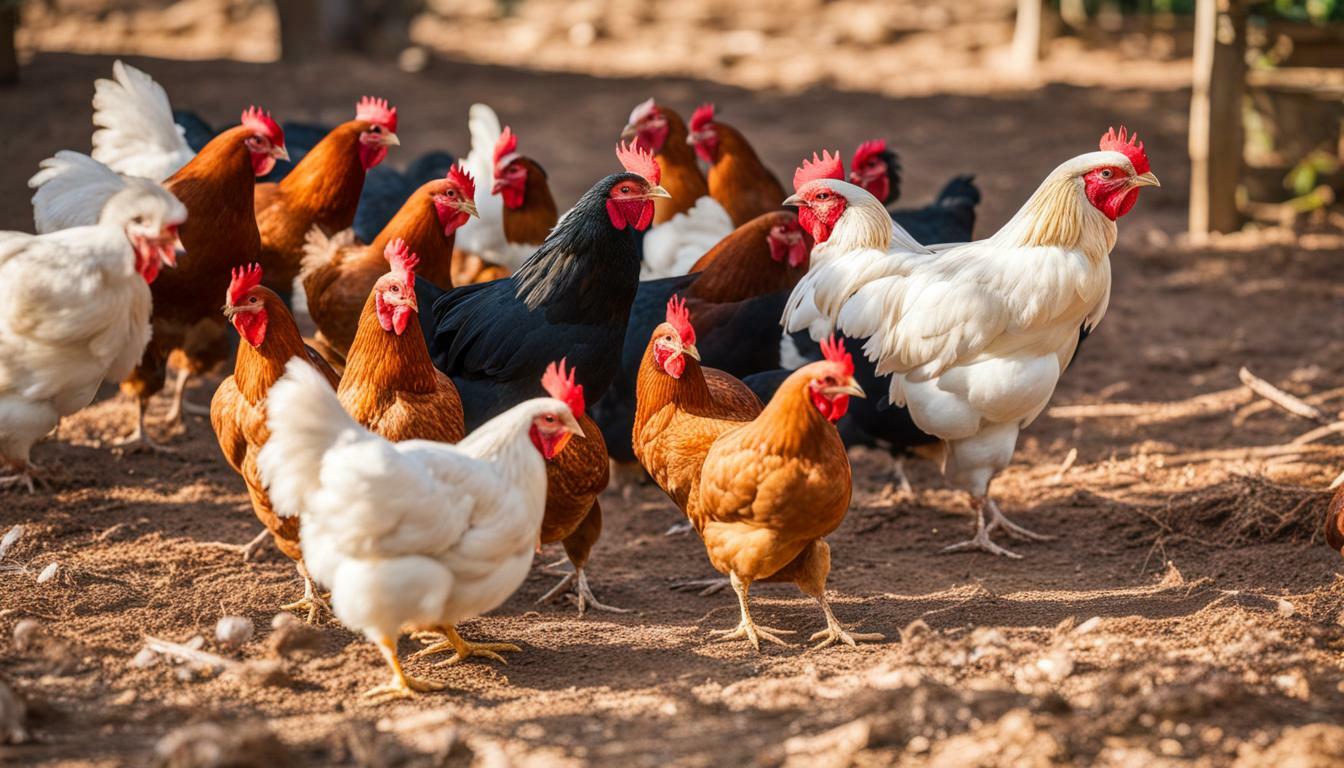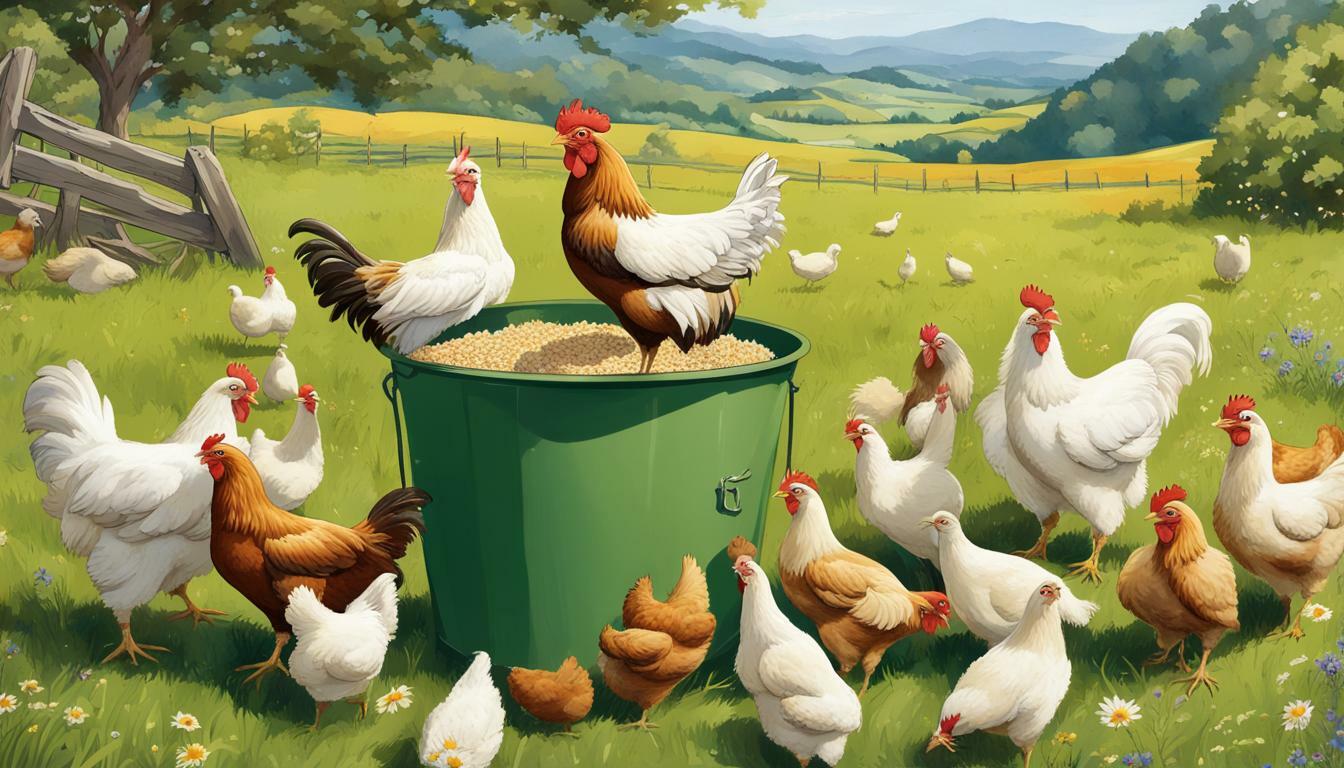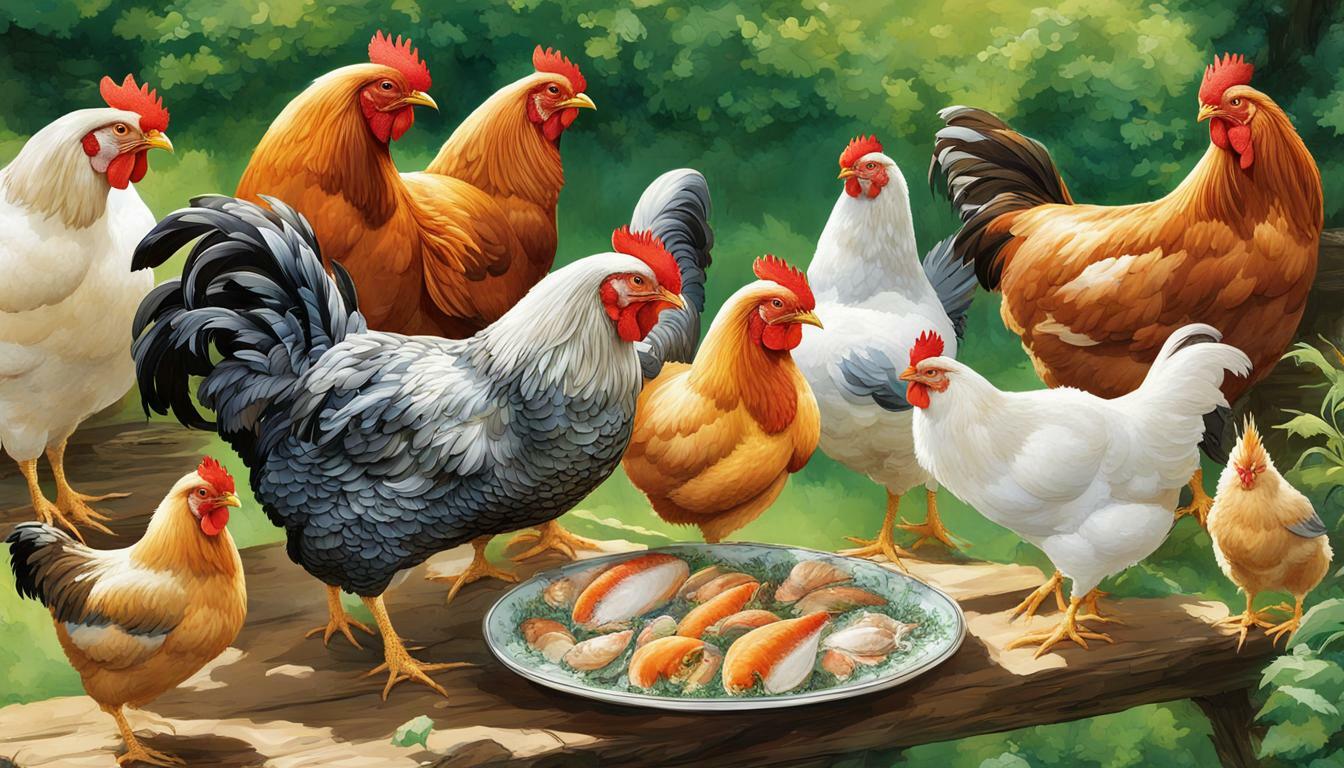Can Chickens Eat Pomegranate? Facts And Feeding Tips Revealed

Table of content:
- Are Pomegranates Safe For Chickens?
- Do Chickens Like The Taste of Pomegranates?
- Can Chickens Eat Pomegranate Seeds or Flesh?
- How Much Pomegranate Should Chickens Eat?
- What Are The Nutritional Benefits of Pomegranates for Chickens?
- Can Too Many Pomegranates Cause Digestive Problems?
- Should Chickens Eat Fresh or Dried Pomegranates?
- Are There Any Risks of Feeding Pomegranates to Chickens?
- Other Fruits and Vegetables Chickens Can Eat
- Is Pomegranate a Healthy Daily Treat or Just an Occasional Snack?
- Final Thoughts
As a backyard chicken owner, you likely enjoy providing your flock with nutritious treats. Pomegranates are a healthy fruit loaded with antioxidants and vitamins. But is it safe to feed pomegranates to chickens?
I’ve raised chickens for over 10 years, so I’ve had plenty of experience figuring out what fruits and vegetables chickens can and cannot eat. Here’s what you need to know about feeding pomegranates to chickens.
Are Pomegranates Safe For Chickens?
The short answer is yes, chickens can safely eat pomegranates. Both the juicy seeds and the fleshy aril are fine for chickens to consume.
Pomegranates contain high levels of vitamin C, vitamin K, folate, and potassium. They also have antioxidants like punicalagins and anthocyanins. These nutrients and antioxidants can boost your chickens’ immune systems and overall health.
So pomegranates make an excellent occasional treat. Just be sure to feed them in moderation.
Do Chickens Like The Taste of Pomegranates?
Chickens are naturally drawn to sweet fruits like pomegranates. When you first offer a sliced open pomegranate, your flock will likely come running!
The red juice and tasty seeds are an irresistible sensory experience for chickens. It’s common to see chickens eagerly nibbling the flesh and slurping up the juicy seeds.
Always start by feeding a small amount to be sure your particular chickens enjoy the taste. But most chickens get excited over their first pomegranate treat.
Can Chickens Eat Pomegranate Seeds or Flesh?
Chickens can safely eat every part of a fresh pomegranate – including both the fleshy interior lining and the seeds.
The flesh provides beneficial nutrients, while the seeds offer a tasty burst of flavor. Both parts provide health benefits.
Some chickens seem to prefer plucking out the individual seeds. Other chickens will happily devour every bit of flesh and juice they can reach.
Offering sliced or quartered pomegranates allows your flock access to both the flesh and the seeds at once.
How Much Pomegranate Should Chickens Eat?
Pomegranates are a healthy treat, but chickens should only eat them in moderation. Too much of a good thing can lead to digestive upset.
For most standard sized chickens, a few seeds or about 1-2 tablespoons of pomegranate flesh 2-3 times per week is sufficient. Larger breeds like Jersey Giants can handle slightly more.
Slice the pomegranate in half and let your chickens share it. Or place a few seeds or a small pile of the fruit in separate dishes so each chicken gets some.
Remove any uneaten portion after 30 minutes so it doesn’t spoil. This will also prevent chickens from overindulging.
What Are The Nutritional Benefits of Pomegranates for Chickens?
Here are some of the top nutrients and antioxidants chickens get from pomegranates:
- Vitamin C – Pomegranates have nearly 3 times the vitamin C of oranges. Vitamin C boosts chickens’ immunity and reduces stress.
- Vitamin K – This vitamin supports bone health and blood clotting ability.
- Potassium – Helps with electrolyte balance, fluid retention, and muscle function.
- Folate – Plays a key role in cell growth and protein metabolism.
- Punicalagins – These antioxidants combat inflammation and protect chickens from damaging free radicals.
- Anthocyanins – Gives pomegranates their vibrant red color. Also has antioxidant and anti-inflammatory effects.
Can Too Many Pomegranates Cause Digestive Problems?
Pomegranates do contain high amounts of natural sugar. The tartaric acid in them can also make them highly acidic.
Consuming too many pomegranates or pomegranate seeds may upset some chicken’s digestive systems, causing loose droppings or diarrhea.
To avoid issues, feed pomegranates in the recommended 1-2 tablespoon serving size just 2-3 times per week. Monitor to see if any chickens have adverse reactions.
Reduce the amount or frequency if the treatment seems to cause diarrhea, loss of appetite, or other concerning symptoms. Each chicken may have a different tolerance level.
Should Chickens Eat Fresh or Dried Pomegranates?
Fresh pomegranates are juicier and contain higher levels of vitamins. But dried, dehydrated pomegranates are also safe for chickens in small amounts.
Dried pomegranates are easy to find year-round. They make a convenient treat during months when fresh pomegranates are out of season.
Both fresh and dried pomegranates are safe for chickens. Just stick to the same suggested serving size – a few seeds or 1-2 tablespoons worth.
Note that dried pomegranates have higher sugar concentrations. Start with just a few dried seeds to see if your flock enjoys them.
Are There Any Risks of Feeding Pomegranates to Chickens?
There are only minimal risks associated with feeding chicken pomegranates in moderation. Here are a few precautions:
- Too much pomegranate may cause loose droppings. Reduce treatment frequency if this occurs.
- Dried pomegranates have more concentrated natural sugar. Don’t exceed the recommended serving size.
- Make sure pomegranates are washed thoroughly before feeding. This removes any potential pesticide residues.
- Monitor to ensure bossier flock members don’t hog the entire treat. The vitamins and antioxidants benefit all chickens.
- Introduce new treats slowly and watch for any signs of allergic reaction or sensitivity.
Overall, most backyard chickens can enjoy pomegranates safely as part of a balanced diet. Just feed them as an occasional snack, not a daily dietary staple.
Other Fruits and Vegetables Chickens Can Eat
In addition to pomegranates, chickens enjoy a wide variety of produce. Here are some other fruits and veggies you can offer:
Fruits:
- Bananas
- Berries (strawberries, blueberries, raspberries)
- Melons (cantaloupe, honeydew, watermelon)
- Apples
- Cranberries
- Mango
- Papaya
- Peaches
Vegetables:
- Squash
- Pumpkin
- Sweet potatoes
- Carrots
- Beets
- Broccoli
- Cauliflower
- Cucumbers
- Leafy greens (kale, spinach, lettuce)
Rotate different produce to provide diversity. Chop larger fruits and veggies into chick-sized pieces before feeding.
Always introduce new items slowly in case of potential allergies or sensitivity.
Is Pomegranate a Healthy Daily Treat or Just an Occasional Snack?
Pomegranates are a nutritious fruit packed with vitamins, minerals, and antioxidants. However, they are best fed in moderation 2-3 times per week rather than daily.
The high sugar and acidity mean pomegranates are most safely enjoyed as an occasional treat. Their juicy sweetness makes them a highly appealing snack chickens look forward to.
You can also use a few dried pomegranate seeds sprinkled over chicken feed as periodic treat. Just don’t exceed the recommended serving size.
Keep your chickens’ diet varied by rotating different fruits and veggies. Pomegranates will add beneficial nutrition and excitement when fed as a periodic snack.
Final Thoughts
Pomegranates are a safe, healthy occasional treat that most backyard chickens will gobble up excitedly. Their stellar nutrient profile provides anti-inflammatory antioxidants, immune-boosting vitamin C, and more. Just be sure not to overfeed them, as too much can cause loose stool. Feed a few seeds or 1-2 tablespoons worth per chicken 2-3 times weekly for an enjoyable snack they’ll love.
Always monitor for any signs of sensitivity or allergic reaction when introducing new treats. With sensible moderation, pomegranates make a fun way to provide your flock with amazing antioxidants and nourishment.
Welcome. I’m Adreena Shanum, the proud owner of this website, and I am incredibly passionate about animals, especially poultry. I founded adreenapets.com as a labor of love, stemming from my desire to share my knowledge and experiences with poultry enthusiasts worldwide.




